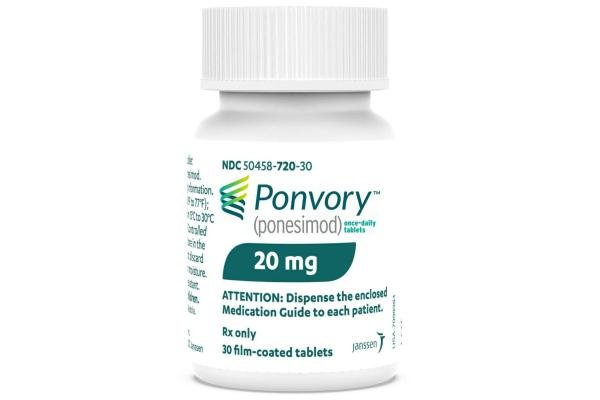Ponesimod and Alcohol/Food Interactions
There are 2 alcohol/food/lifestyle interactions with ponesimod.
Ponesimod High Blood Pressure (Hypertension)
Moderate Potential Hazard, Moderate plausibility
ponesimod - arrhythmia
The use of ponesimod may result in a transient decrease in heart rate and atrioventricular (AV) conduction delays, especially during treatment initiation. This drug is not recommended in patients with a history of cardiac arrest, cerebrovascular disease (e.g., TIA, stroke occurring more than 6 months prior to treatment initiation), uncontrolled hypertension, or severe untreated sleep apnea, since significant bradycardia may be poorly tolerated in these patients. The use of this drug in patients with a history of recurrent syncope or symptomatic bradycardia should be based on an overall benefit-risk assessment. Obtain an ECG in all patients to determine whether preexisting conduction abnormalities are present and consult a cardiologist if appropriate. Monitor closely patients taking concurrent therapy with drugs that decrease heart rate (e.g., beta-blockers, non-dihydropyridine calcium channel blockers, and other drugs that may decrease heart rate).
Ponesimod High Blood Pressure (Hypertension)
Moderate Potential Hazard, Moderate plausibility
ponesimod - hypertension
The use of ponesimod may result in increased blood pressure. Care should be exercised when using this drug in hypertensive patients and those at risk for hypertension. It is recommended to monitor blood pressure during treatment and manage it according to clinical practices.
Switch to professional interaction data
Ponesimod drug interactions
There are 697 drug interactions with ponesimod.
Ponesimod disease interactions
There are 9 disease interactions with ponesimod which include:
- arrhythmia
- hypertension
- infections
- liver dysfunction
- pulmonary impairment
- vaccination
- encephalopathy
- macular edema
- MS
More about ponesimod
- ponesimod consumer information
- Check interactions
- Compare alternatives
- Side effects
- Dosage information
- During pregnancy
- Drug class: selective immunosuppressants
- Breastfeeding
- En español
Related treatment guides
Drug Interaction Classification
| Highly clinically significant. Avoid combinations; the risk of the interaction outweighs the benefit. | |
| Moderately clinically significant. Usually avoid combinations; use it only under special circumstances. | |
| Minimally clinically significant. Minimize risk; assess risk and consider an alternative drug, take steps to circumvent the interaction risk and/or institute a monitoring plan. | |
| No interaction information available. |
See also:
Further information
Always consult your healthcare provider to ensure the information displayed on this page applies to your personal circumstances.


